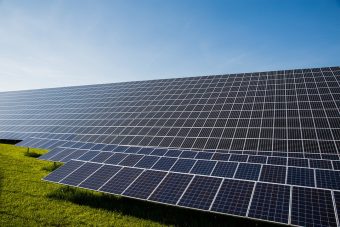
The second meeting of the Global Commission on People-Centred Clean Energy Transitions took place today, bringing together 25 high-profile energy and climate figures from around the world to assess how to ensure that the transition to clean energy is fair and inclusive for everyone.
The virtual meeting of the Global Commission was chaired by Dan Jørgensen, Denmark’s Minister of Climate, Energy and Utilities. The Global Commission, which was convened in January by IEA Executive Director Fatih Birol, is led by the Danish Prime Minister Mette Frederiksen, chaired by Minster Jørgensen and co-chaired by Sophie Gladima, Senegal’s Minister of Petroleum and Energy. It is made up of national leaders, government ministers, civil society representatives and other prominent figures working together to identify key actions in delivering people-centred and inclusive clean energy transitions.
“Clean energy transitions are about people, and for people, and will fail if they are not people-centred,” said Dr Birol. “There is no reason why any adverse impacts cannot be properly addressed if governments take the right actions based on sound policies that reflect their unique national circumstances. Public support is essential for a successful energy transition that can build a cleaner, more prosperous future and prevent the worst effects of climate change.”
The participants in the meeting stressed the importance of ensuring people benefit through the creation of good quality jobs in clean energy, and of protecting workers and communities that are negatively affected by employment shifts and job losses. They also underscored the importance of achieving universal access to clean, affordable and reliable energy worldwide as an integral part of energy transitions. And they recognised that while countries’ efforts to transform their energy systems present common challenges, local circumstances also need to be taken into account.
Today’s gathering continued the discussion from the Commission’s first meeting on 15 March, maintaining a focus on creating jobs, encouraging public participation, and enhancing social and economic development, equity and inclusion. The discussions were enriched by the IEA’s recent analysis presented in its special report on Financing Clean Energy Transitions in Emerging and Developing Economies, as well as by the employment analysis in Net Zero by 2050: A Roadmap for the Global Energy Sector.
More:
Today’s meeting was a key moment for Commission members to share their views, preferences and points of concern on major issues ahead of the development of recommendations for the COP26 Climate Change Conference that will take place in Glasgow starting 31 October. These inputs and recommendations will be finalised at the Commission’s third meeting in October.
The Commission’s first meeting on 15 March provided crucial input for the IEA-COP26 Net Zero Summit on 31 March, where energy and climate leaders from more than 40 countries backed further action to cut carbon emissions, and highlighted the economic opportunities presented by clean energy transitions.
The Commission will organise two public webinars in July: one high-level event exploring the role of labour in our inclusive energy future, and one on behavioural insights for inclusive clean energy transitions.
The Commission’s most recent public webinar on “Best Practice in People-Centred Policymaking” brought together Ministers from Canada, Senegal, Switzerland and Colombia; the European Commissioner for Energy; and the Special Advisor on Climate to the UN Secretary General.
Source: IEA


